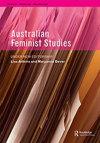绿色还是性别现代本土主义者:他们存在吗?他们投票给右翼民粹主义政党吗?
IF 1.5
4区 社会学
Q2 WOMENS STUDIES
引用次数: 1
摘要
摘要当前,西方社会右翼民粹主义政党的焦点一直是反环保主义和反女权主义,与他们占主导地位的反移民议程纠缠在一起。这种立场的聚类与选民研究中概念上的GAL-TAN(绿色、另类、自由主义-传统、威权主义、民族主义)区别重叠。尽管如此,许多选民可能会超越这种区别,例如坚持女性主义。通过采取女权主义的自下而上的方法,我们揭示了本土主义、反女权主义和反环保主义的态度是如何在西欧聚集的。我们的结果显示,大约30%的选民偏离了GAL-TAN的逻辑,相当多的公民将强烈的本土主义与支持性别平等或温和的本土主义和反女权主义结合在一起。此外,我们估计了对RWP政党的支持,并表明本土主义是支持RWP精英的核心,反环保主义可以提供额外的选票奖励。然而,我们的分析表明,人们政治意识形态中的(反)女权主义和本土主义元素包含了更复杂的纠缠:反女权主义的本土主义选民和女性主义选民都被RWP政党所吸引。这些结果表明,需要进行女权主义定量研究,以揭露可以动员起来支持RWP政党的反抗平均水平的少数群体。本文章由计算机程序翻译,如有差异,请以英文原文为准。
Green or Gender-Modern Nativists: Do They Exist and Do They Vote for Right-Wing Populist Parties?
ABSTRACT A current focal point of right-wing populist (RWP) parties across Western societies has been anti-environmentalism and anti-feminism, entangled with their dominant anti-migrant agenda. This clustering of positions overlaps with the conceptual GAL-TAN (Green, Alternative, Liberalist – Traditional, Authoritarian, Nationalist) distinction in voter studies. Still, numerous voters might transcend this distinction, for instance adhering to femonationalism. By taking a feminist ground-up approach, we reveal how nativist, anti-feminist, and anti-environmentalist attitudes do (or do not) cluster across Western Europe. Our results show that approximately 30% of voters deviate from the GAL-TAN logic, with considerable clusters of citizens combining strong nativism with support for gender equality or moderate nativism with anti-feminism. Further, we estimate the support for RWP parties and show that nativism is core to supporting RWP elites, and anti-environmentalism can provide an additional vote bonus. However, our analysis reveals that the (anti-)feminist and nativist elements of people’s political ideology entail more complex entanglements: both anti-feminist nativist voters and femonationalist voters gravitate to RWP parties. These results imply that feminist quantitative studies are needed to lay bare the average-defying minority groups that can be mobilised to support RWP parties.
求助全文
通过发布文献求助,成功后即可免费获取论文全文。
去求助
来源期刊

Australian Feminist Studies
WOMENS STUDIES-
CiteScore
2.50
自引率
0.00%
发文量
7
期刊介绍:
Australian Feminist Studies was launched in the summer of 1985 by the Research Centre for Women"s Studies at the University of Adelaide. During the subsequent two decades it has become a leading journal of feminist studies. As an international, peer-reviewed journal, Australian Feminist Studies is proud to sustain a clear political commitment to feminist teaching, research and scholarship. The journal publishes articles of the highest calibre from all around the world, that contribute to current developments and issues across a spectrum of feminisms.
 求助内容:
求助内容: 应助结果提醒方式:
应助结果提醒方式:


